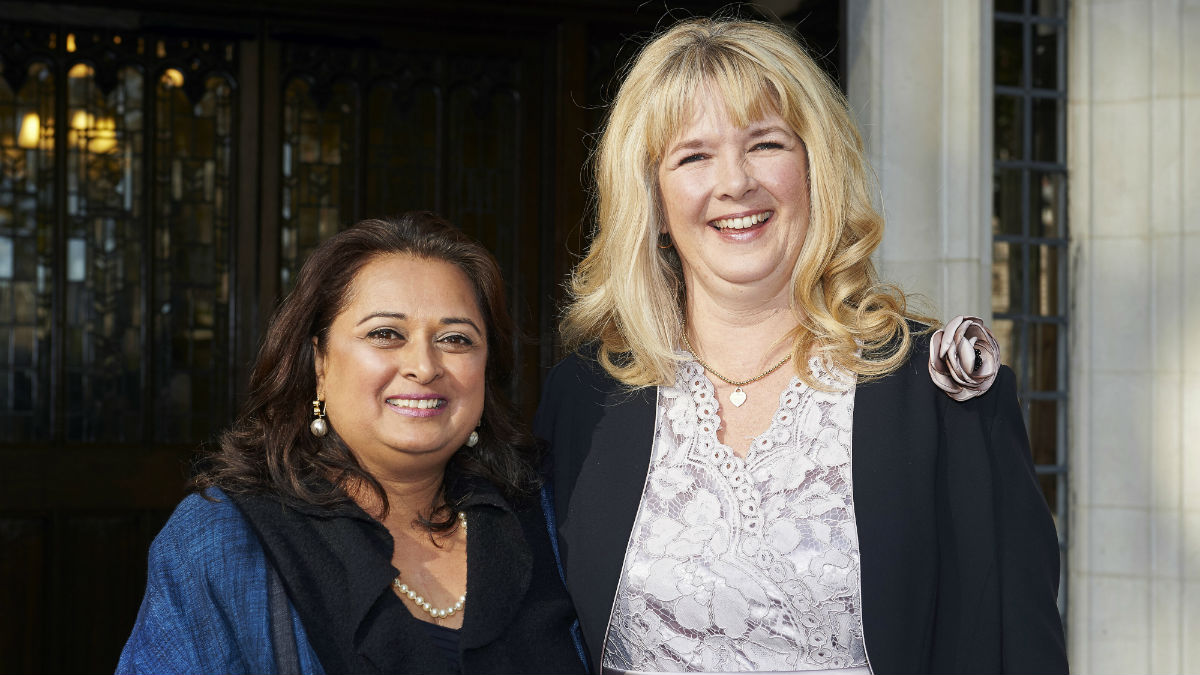Landmark divorce ruling: how will it affect future settlements?
Victory at the Supreme Court for Alison Sharland and Varsha Gohil has wide implications for all

A free daily email with the biggest news stories of the day – and the best features from TheWeek.com
You are now subscribed
Your newsletter sign-up was successful
Two women who believe their ex-husbands lied about their wealth during divorce proceedings have won a Supreme Court appeal to have their settlements re-examined.
Alison Sharland, 48, and Varsha Gohil, 50, were yesterday granted their wish to have their cases reheard after new evidence suggested that their former husbands had hidden the extent of their wealth.
Lawyers say the ruling is a "victory for common sense and a defeat for dishonesty" and could "open the floodgates" to thousands of people trying to renegotiate historic divorce settlements.
The Week
Escape your echo chamber. Get the facts behind the news, plus analysis from multiple perspectives.

Sign up for The Week's Free Newsletters
From our morning news briefing to a weekly Good News Newsletter, get the best of The Week delivered directly to your inbox.
From our morning news briefing to a weekly Good News Newsletter, get the best of The Week delivered directly to your inbox.
What happened?
In 2012, Sharland, from Wilmslow in Cheshire, accepted a £10m settlement from her husband Charles, a software entrepreneur, believing it represented half his wealth. It later transpired he had lied about the value of his company – which has since been estimated at about £600m – as well as plans to float it on the stock market.
Gohil, from north London, accepted a car as well as £270,000 as a settlement when she divorced her husband Bhadresh in 2002. Eight years later he was convicted of money laundering and jailed. At his criminal trial, evidence revealed he had failed to disclose his true wealth during his divorce.
Will it lead to a re-opening of former cases?
A free daily email with the biggest news stories of the day – and the best features from TheWeek.com
Possibly. However, the emotional turmoil of revisiting a painful episode, coupled with the inevitability of further legal fees, is likely to be a disincentive. Philip Way, of law firm Mills & Reeve, told the Associated Press: "The court has taken the risk of opening the floodgates, but rightly chose to give priority to the requirement for everyone involved in matrimonial litigation to tell the whole truth."
Is there a time limit?
Technically not. But the more time that elapses the harder it is likely to be to pursue the claims. "Only if new information about a former spouse's assets has come to light will they have the chance to overturn the original consent order," says Charlotte Bradley, head of family law at Kingsley Napley LLP, in the Daily Telegraph.
So this is more about principle?
Partly. It also intends to act as a deterrent to those thinking about hiding their assets while settling in the courts. As BBC legal correspondent Clive Coleman says: "If one of the parties is dishonest... then this is a very clear signal that the other party can go back to court, have the agreement set aside and have the whole thing considered again."
-
 Why are election experts taking Trump’s midterm threats seriously?
Why are election experts taking Trump’s midterm threats seriously?IN THE SPOTLIGHT As the president muses about polling place deployments and a centralized electoral system aimed at one-party control, lawmakers are taking this administration at its word
-
 ‘Restaurateurs have become millionaires’
‘Restaurateurs have become millionaires’Instant Opinion Opinion, comment and editorials of the day
-
 Earth is rapidly approaching a ‘hothouse’ trajectory of warming
Earth is rapidly approaching a ‘hothouse’ trajectory of warmingThe explainer It may become impossible to fix